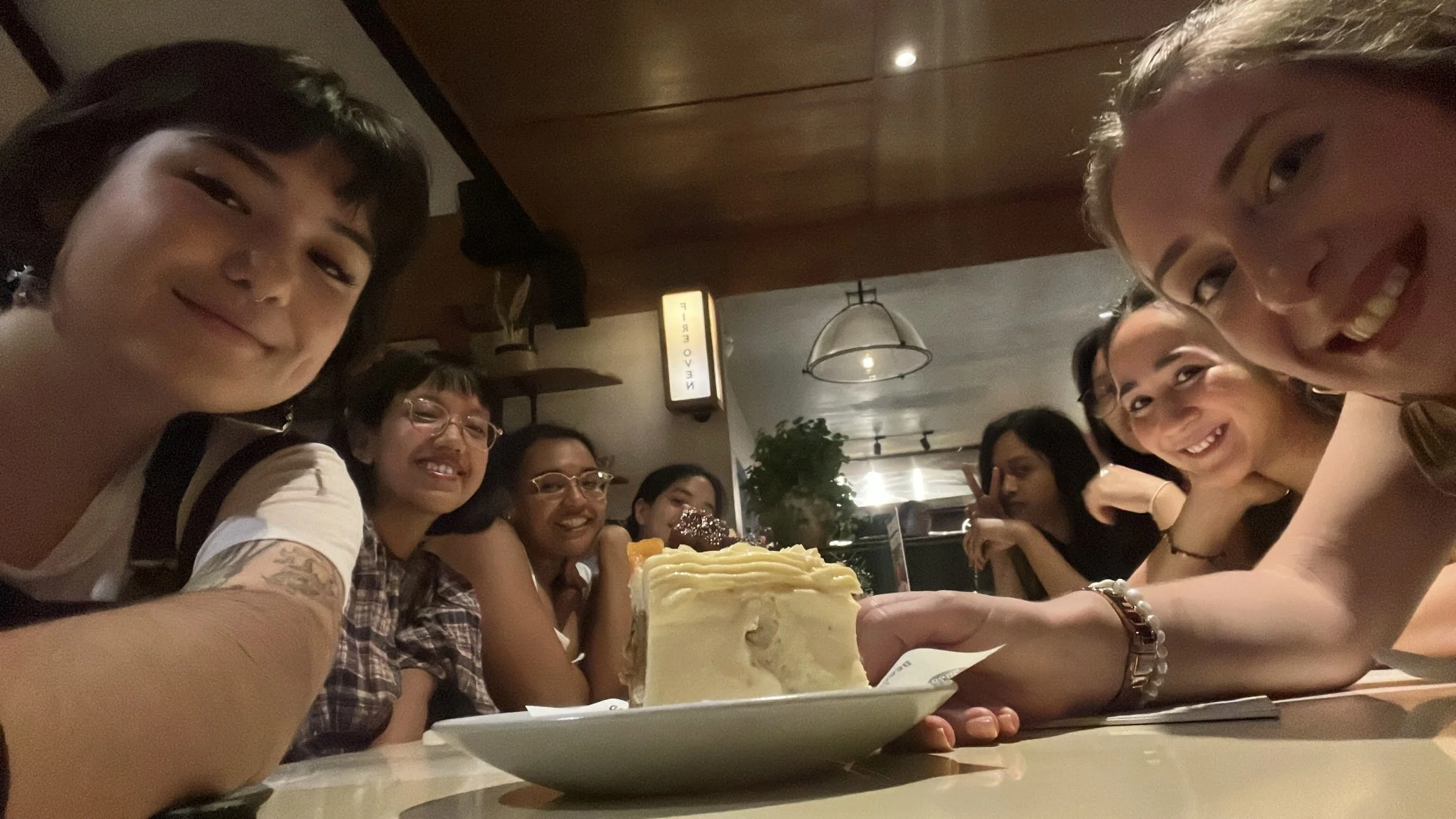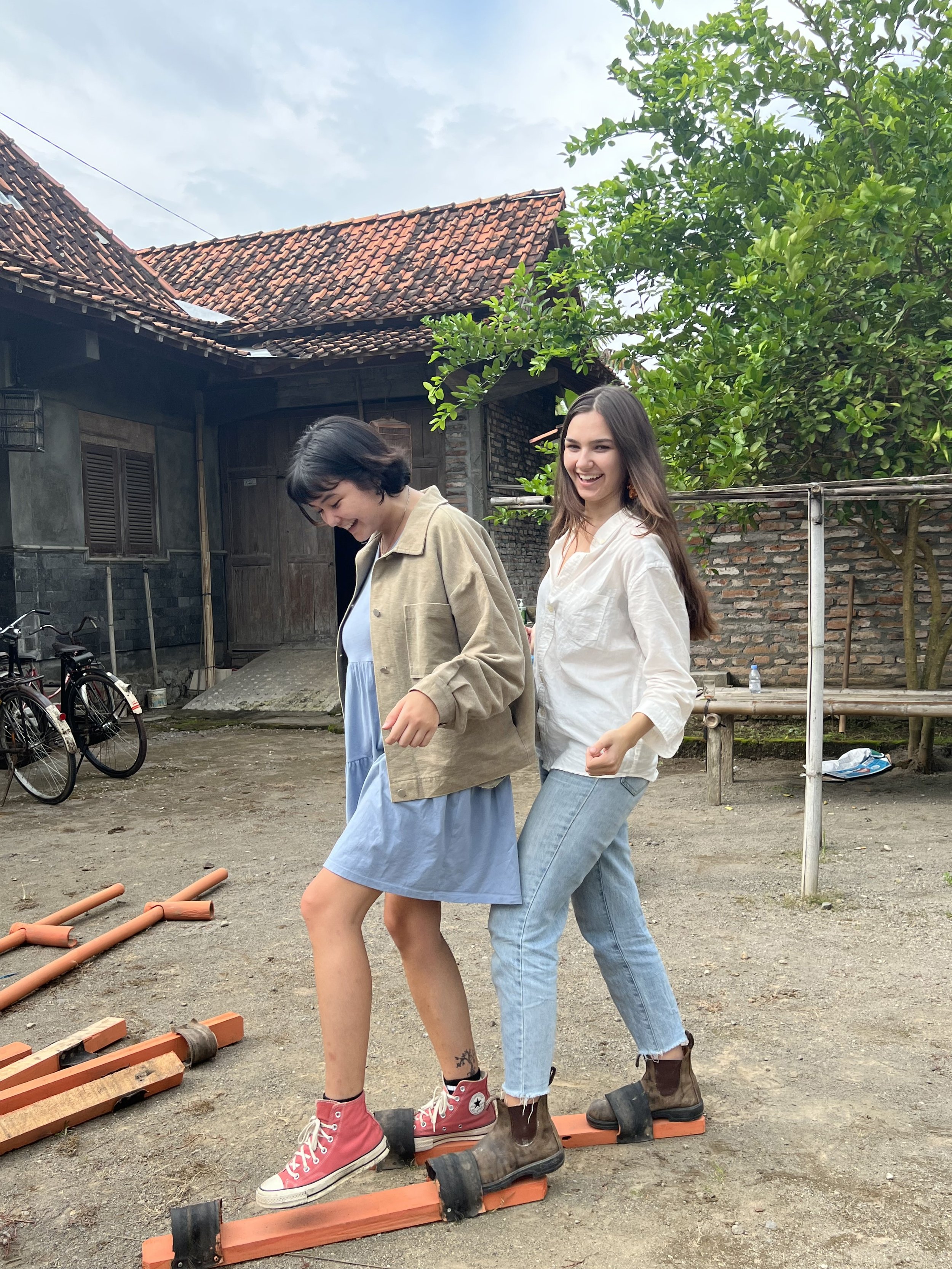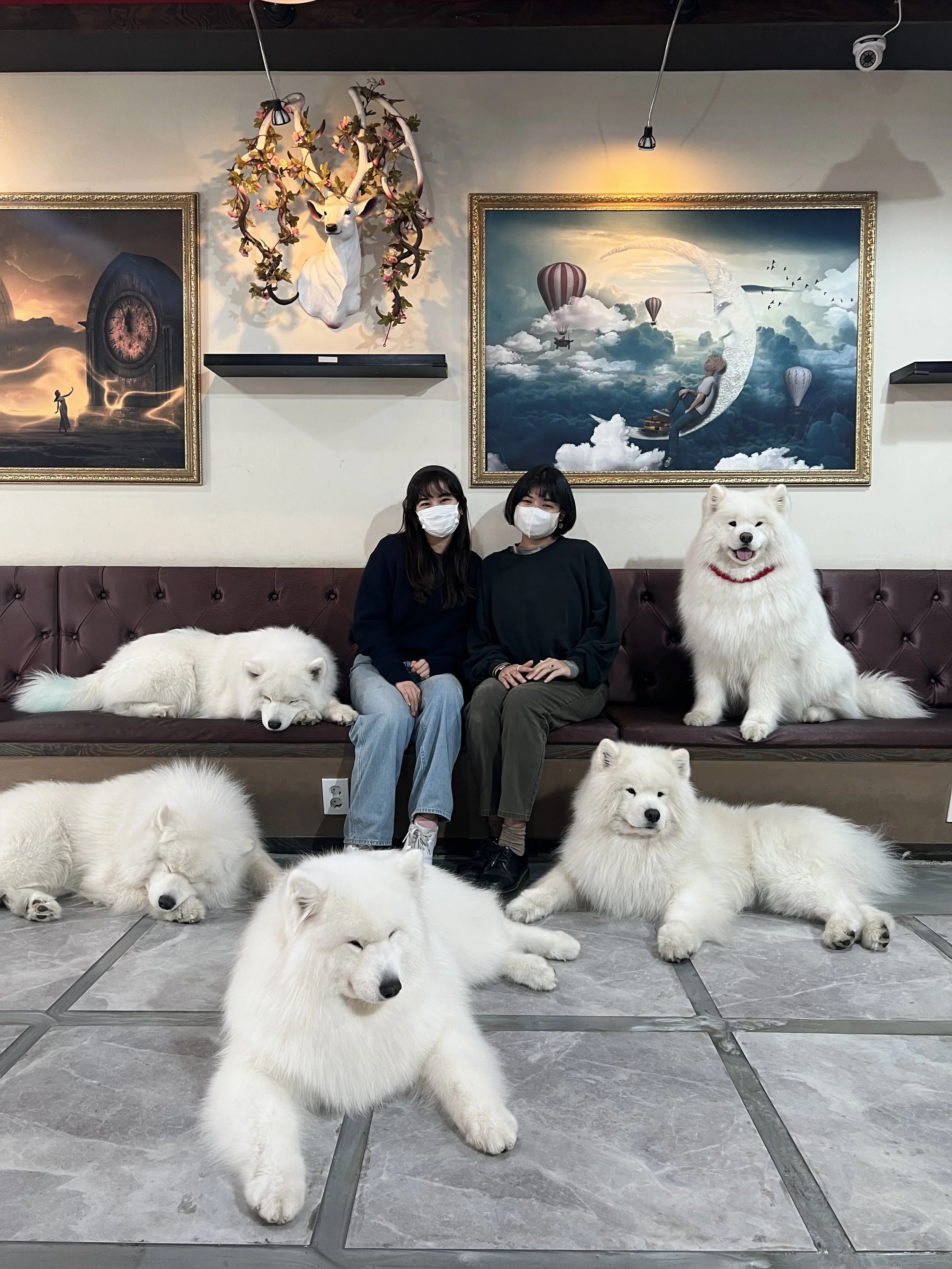Saying “Yes”
By Samantha Perez ‘21, Gadjah Mada University Fellow 2021-2023
In a few months time, I’ll have been in Indonesia for a year.
The upcoming anniversary has led me to reflect on my time thus far, thinking about the innumerable ways in which I’ve grown and changed over the past year. As with all moments of personal growth and change, I have been, at many points, unsure of myself.
As mentioned in my last report, I completed the first 9 months of my fellowship online due to Covid restrictions, and so when I finally arrived in Indonesia, I desperately wanted to make up for all the lost time. I thought it would be best to say “yes” to everything.
“Yes” to coffee meet-ups, “yes” to moderating a panel for an Irish ambassador, “yes” to a retreat to the beach, “yes” to judging a story-telling contest, “yes” to joining a panel to talk about coffee culture, “yes” to biking 50 kilometers. “Yes” to just about anything you can think of.
Selfie after biking 50 kilometers to Kali Oyo
This past year has made me reflect on many things, one of which in particular is my role as a US-American. I’ve discovered that where you are from drastically affects the way you navigate a new place, especially a new country. The more things I said “yes” to, the more I felt pretty unqualified to do those things, and the more I felt as if I was only getting asked simply because I am from the United States – a fact which, I’ve found, carries some degree of social capital or “novelty.” It became increasingly confusing to determine whether these invitations were indicative of my being taken advantage of, or if my imposter syndrome was taking hold, and these invitations were in fact entirely genuine.
Nonetheless, at many of the events I was invited to, and panels I participated in, I began to feel as though people expected me to be a spokesperson for my country, to be the entire representative of it and able to express a totality of American viewpoints. How can I best speak on behalf of an entire country? How do I respond to someone when they ask me to talk about “American culture”? This expectation made me appear more qualified to do things such as sit on a panel about coffee, or judge a storytelling contest, or a food competition. Truthfully, I felt unqualified to do any of those things.
This imposter syndrome has also bled into my confidence when it came to teaching college students. Having just graduated less than two years from university myself, I always felt a bit under qualified to be teaching those who are just a few years younger than me, and on the other hand those who are in graduate school. But, the relationships I’ve built with colleagues and positive feedback from students has helped to assuage these fears, and assure me that the imposter syndrome I experience as a teacher is not based in reality.
Selfie at dinner with my friends from Oberlin and my friends from Indonesia together in Bali
The more I reflect, the more these moments of discomfort seem inconsequential to the numerous benefits saying “yes” to things has afforded me.
I have had outcomes ranging from beautiful to a bit unusual as a result of saying “yes” to everything someone asks of me. The coffee meetups led to deepening friendships with those I now consider family. Moderating a panel for the Irish ambassador inadvertently led people to mistake me as his assistant, followed by a day of accompanying him to important meetings regarding the strengthening of Irish-Indonesian relations. When I accepted an invite from a friend to a beach retreat, I unintentionally joined an international Christian congregation. So on and so forth.
Me and my co-fellow Colby after joining a field trip to a nearby village to do batik
Saying “yes” also means saying yes to spending money, which is something that I struggled with growing up. Realizing this may be the only time I’ll be in Asia with this much free time, I took my time off from teaching to travel around Asia, visiting Malaysia, Cambodia, Vietnam, and South Korea. I spent new years with fellow Shansi Fellows and close friends in Bali, who were able to also meet my new friends in Indonesia (I still get emotional thinking about how well my friends from both worlds got along!). Sometimes, it is okay to splurge and briefly forget about your impending student loan payments…. Right?
Me and Machida Fellow Leina visiting a Samoyed cafe in Seoul, Korea
Saying “yes” to everything has also led me to start being more picky with how I choose my time. In reality, my fellowship ends in almost 4 months and agreeing to everything is not the best way to spend precious time. Although the people-pleaser in me still struggles to do so, saying “no” can be the easiest way to practice self-care and prioritize things and people that make me happy. I feel as if now I have the ability to identify genuine versus superficial relationships, and after meeting so many people in Jogja, I realized that it is more important to form close relationships with people I can feel comfortable with. Not only have I made connections that make me want to stay in Indonesia forever, but I’ve had so many incredible experiences with them, including swimming in rivers, enjoying nights drinking local wine and whiskey, and visiting cities around Java.
After almost one year, I can say that I am satisfied with the way I spent my time. Yes, I could have said “no” a lot more things that I shouldn’t have done, but if I had, I wouldn’t have so many interesting, and at times, embarrassing stories to bring back home.





